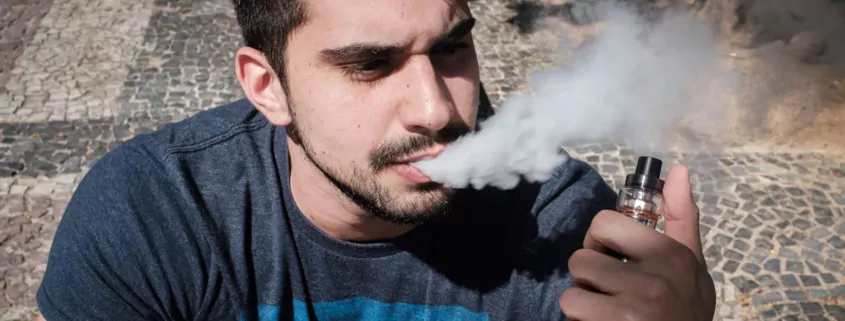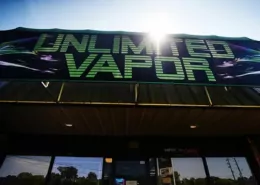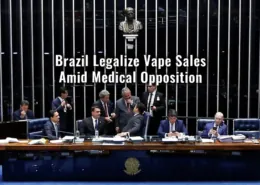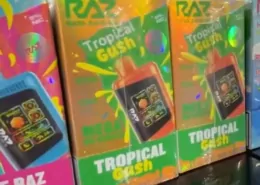Brazil Sees Surge in E-Cigarette Seizures Despite Ban
Brazil has witnessed a significant increase in the seizure of electronic cigarettes, commonly known as “vapes,” in 2024, despite a long-standing prohibition by the National Health Surveillance Agency (Anvisa) since 2009. The state of São Paulo, in particular, saw a sevenfold increase in confiscated devices compared to the previous year, highlighting the growing popularity of the product in the face of strict regulations.
Clandestine Sales and Enforcement Efforts
Although the sale and consumption of e-cigarettes remain illegal in Brazil, the products are easily accessible through various clandestine channels. A simple online search reveals numerous advertisements for vapes, which are often sold disguised as other items through delivery apps.
In response to the increasing popularity and smuggling of e-cigarettes, the Federal Revenue Service has stepped up enforcement efforts at the country’s borders and ports. Several states have recorded significant growth in seizures:
- Paraná: Over 1.1 million units seized, doubling the previous year’s figures
- São Paulo: Approximately 937,000 units confiscated, valued at an estimated R$ 105 million
- Other states, including Acre, Rio Grande do Sul, Pará, and Paraíba, also reported substantial increases in seizures
Links to Organized Crime and Health Concerns
E-cigarettes find their way into Brazil through the same routes exploited by drug traffickers, often crossing borders and entering through ports such as Santos in São Paulo. Edson Vismona, president of the National Forum Against Piracy and Illegality, warns that criminal organizations are increasingly viewing the clandestine vape market as a lucrative opportunity.
“These illegal products finance organized crime, which already operates strongly in the smuggling of other goods,” Vismona explains, underscoring the broader implications of the illegal e-cigarette trade.
Merchants caught selling e-cigarettes face severe penalties, including fines, seizure of products, and even the loss of their business registration number (CNPJ), according to Marcelo Pagotti, director of enforcement at Procon-SP.
Beyond the economic impact, experts raise concerns about the health risks associated with unregulated e-cigarettes. In countries where vape sales are legal and regulated, there is greater control over product quality and safety. However, in Brazil, where 100% of the devices are illegal, there is no health supervision, potentially exposing consumers to unknown dangers.
The Need for Debate and Regulation
In January 2024 alone, e-cigarette seizures in Brazil totaled R$ 4.5 million, underscoring the rapid growth in consumption and the pressing need for a national dialogue on product regulation.
As the country grapples with the challenges posed by the illegal e-cigarette market, policymakers, health experts, and law enforcement agencies must work together to find effective solutions that prioritize public health and safety while addressing the complex issues of smuggling and organized crime.
- Malaysia Negeri Sembilan Backs Vape Ban, Awaits Clear Laws - August 5, 2025
- Is It Illegal to Vape or Smoke While Driving in Massachusetts? - August 5, 2025
- Austria Plans to Ban Disposable E-Cigarettes - August 5, 2025








